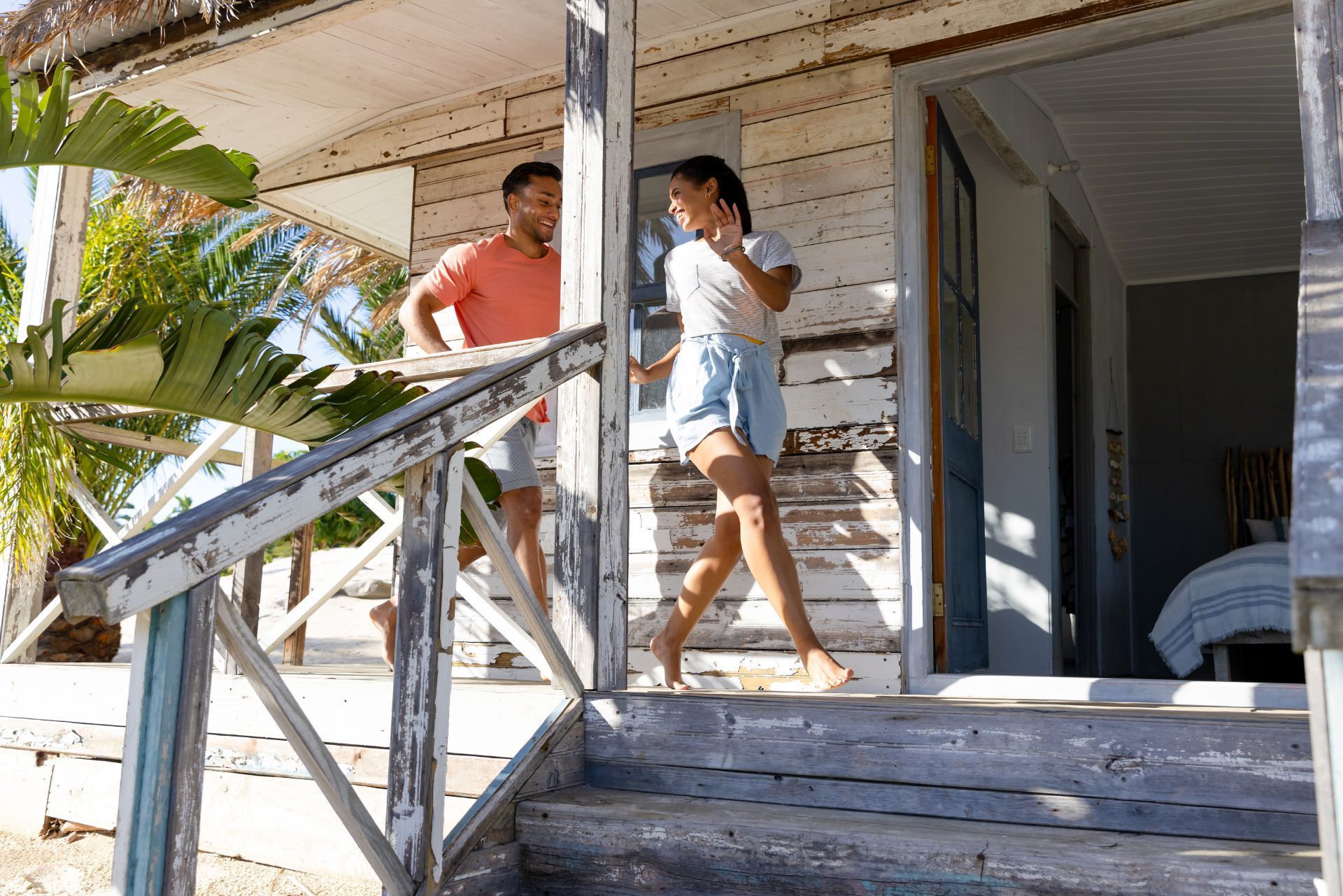Minnesota Airbnb Property Insurance

See How We're Different
or call us: (763) 242-1668
Common Business Insurance Policies
By: Matt Larsen
Owner of Capstone Insurance Group & Restaurant Insurance Advisor
763-242-1668
Index
Contact Us
Phone
Location
Whether you're a seasoned Airbnb host or considering renting out your Minnesota property for the first time, understanding the nuances of property insurance is essential. Minnesota's unique climate, recent weather events, and evolving insurance market all impact how you should approach protecting your investment. This comprehensive guide covers everything you need to know about Airbnb property insurance in Minnesota, helping you make informed decisions to safeguard your rental property and your peace of mind.
Understanding the Insurance Landscape in Minnesota
Homeowners and rental property owners in Minnesota face a challenging insurance environment. Over the past several years, insurance premiums have risen significantly, with Minnesota ranking 12th nationally in premium increases. In fact, property insurance rates in the state have surged by 39% over the last seven years, far outpacing inflation. This trend directly affects Airbnb hosts who need reliable coverage without breaking the bank.
One major factor driving these increases is the frequency and severity of weather-related events. For example, a single storm in 2023 caused approximately $1 billion in claimed losses across the Twin Cities and central Minnesota. Such events strain insurance companies and contribute to higher premiums for policyholders. Additionally, the impact of climate change cannot be overlooked; as weather patterns become more unpredictable, the likelihood of severe storms and flooding increases, further exacerbating the financial burden on insurers and, consequently, on homeowners.
Given these dynamics, it’s crucial for Airbnb hosts to carefully evaluate their insurance options to ensure adequate protection. Hosts should consider specialized short-term rental insurance policies that cater specifically to the unique risks associated with renting out property on platforms like Airbnb. These policies often provide coverage for liability, property damage, and loss of income due to cancellations, which can be particularly beneficial in the event of unforeseen circumstances. For more insight into Minnesota’s insurance premium trends, you can visit ProgramBusiness.
Moreover, it’s essential for property owners to stay informed about local regulations that may affect their insurance needs. Cities like Minneapolis and St. Paul have implemented specific rules governing short-term rentals, which can influence the type of coverage required. Engaging with local insurance agents who understand these regulations can provide Airbnb hosts with tailored advice, ensuring they are not only compliant but also adequately protected against potential liabilities. Understanding the nuances of the insurance landscape in Minnesota is vital for property owners aiming to navigate these turbulent waters effectively.

Why Standard Homeowners Insurance May Not Be Enough for Airbnb Hosts
Many Minnesota homeowners start with a standard homeowners insurance policy, which typically covers personal residences but often excludes or limits coverage for short-term rentals like Airbnb. This gap can leave hosts exposed to significant financial risk if a guest causes property damage or if liability claims arise.
Standard policies may not cover damages related to frequent guest turnover, commercial use of the property, or specific liabilities associated with hosting strangers. For example, if a guest is injured on your property, your standard policy might not provide sufficient liability protection.
Because of these limitations, Airbnb hosts should consider specialized insurance options designed for short-term rentals. These policies often include coverage for property damage, liability protection, and loss of income due to property damage or other covered events.
In addition to property damage and liability coverage, specialized insurance for Airbnb hosts can also offer protection against various risks that are unique to short-term rentals. For instance, some policies provide coverage for theft or vandalism, which can be a concern when welcoming unfamiliar guests into your home. Furthermore, these tailored policies may cover the costs associated with legal defense in the event of a lawsuit, which can be a significant financial burden for hosts who may not have the resources to handle such situations on their own.
Moreover, many specialized insurance plans offer features that cater specifically to the needs of Airbnb hosts, such as coverage for lost rental income if your property becomes uninhabitable due to a covered event like fire or flooding. This can be particularly crucial for hosts who rely on the income generated from short-term rentals to help pay their mortgage or other expenses. By investing in a policy that addresses these unique risks, hosts can enjoy peace of mind, knowing that they are better protected against the uncertainties that come with sharing their home with guests.
Types of Insurance Coverage for Minnesota Airbnb Properties
Short-Term Rental Insurance
Short-term rental insurance is tailored specifically for properties rented out on platforms like Airbnb. This coverage bridges the gap between homeowners insurance and the commercial risks associated with hosting guests. It typically covers property damage caused by guests, liability claims, and sometimes even loss of rental income.
Since Minnesota has experienced rising insurance costs, with average homeowner premiums projected to increase by 15% in 2025—from $294 to $338 per month—investing in the right insurance coverage can prevent unexpected out-of-pocket expenses in the event of a claim. More details on these projections can be found through Insurify. Additionally, many short-term rental insurance policies offer unique features such as coverage for theft, vandalism, and even guest injuries that occur on the property. This comprehensive protection can provide peace of mind for hosts, allowing them to focus on providing an exceptional experience for their guests without the constant worry of potential financial repercussions.
Liability Insurance
Liability coverage is crucial for Airbnb hosts to protect against claims if a guest is injured or if the host is found responsible for damages to a guest’s property. This type of insurance helps cover legal fees, medical expenses, and settlements or judgments.
Given that Minnesota homeowners place high value on customer service and response times from insurance companies, selecting an insurer with a strong reputation for handling claims efficiently can be just as important as the policy itself. Furthermore, many policies now include additional protections, such as coverage for incidents that occur off-premises, which can be particularly beneficial for hosts who may offer guided tours or experiences as part of their rental service. Understanding the nuances of these policies can empower hosts to make informed decisions that enhance their overall hosting strategy.
Renters Insurance for Guests
While hosts focus on property and liability coverage, renters insurance is also relevant for guests. In Minnesota, the average annual premium for renters insurance is $187, providing guests with protection for their personal belongings during their stay. Encouraging guests to have renters insurance can reduce disputes and clarify responsibility for lost or damaged items.
Moreover, some Airbnb hosts are beginning to offer incentives for guests who present proof of renters insurance, such as discounts on their stay or complimentary amenities. This not only fosters a sense of security for guests but also enhances the host's reputation as a responsible and considerate provider. Additionally, educating guests about the benefits of renters insurance can lead to a more positive rental experience, as they feel more secure knowing their belongings are protected while they enjoy their time in Minnesota.
How Rising Insurance Costs Affect Airbnb Hosting in Minnesota
The increasing cost of insurance is not just a financial concern for individual hosts—it also impacts broader housing and rental markets. Experts from the Federal Reserve Bank of Minneapolis have noted that rising property insurance costs are influencing decisions around new developments, particularly affordable housing projects. This trend extends to the short-term rental market, where hosts must balance profitability with higher operating expenses. As insurance costs rise, many potential hosts may reconsider entering the market altogether, leading to a decrease in available short-term rental options, which can further exacerbate housing shortages in certain areas.
For Airbnb hosts, this means that insurance premiums are becoming a more significant factor in determining whether hosting remains financially viable. The projected 15% increase in home insurance premiums in 2025 highlights the importance of budgeting carefully and exploring all available insurance options. Hosts may find themselves needing to adjust their pricing strategies or even limit the number of guests they accommodate to offset these rising costs. Moreover, the increased financial burden could lead to a greater reliance on insurance providers who offer specialized policies tailored for short-term rentals, potentially shifting the competitive landscape within the insurance market itself.
To understand how these rising costs are shaping housing markets and rental decisions, see the analysis provided by the
Federal Reserve Bank of Minneapolis. Additionally, it is crucial for hosts to stay informed about local regulations and insurance requirements, as these can vary significantly from one municipality to another. Engaging with local host communities can provide valuable insights and strategies for managing insurance costs effectively, ensuring that they remain competitive in an increasingly challenging market.

Tips for Minnesota Airbnb Hosts to Manage Insurance Costs
Shop Around and Compare Policies
Because insurance premiums vary widely, it’s essential to compare quotes from multiple providers. Look for policies that specifically cover short-term rentals and evaluate the coverage limits, deductibles, and exclusions carefully. Additionally, consider reaching out to local insurance agents who understand the unique risks associated with hosting. They can provide tailored advice and may even have access to exclusive rates or packages that aren't widely advertised. Remember, the cheapest policy isn't always the best; it's crucial to find a balance between affordability and adequate coverage to protect your investment and your guests.
Maintain Your Property
Regular maintenance and safety upgrades can reduce the risk of claims. Installing smoke detectors, security systems, and ensuring the property meets local safety codes can lower premiums and protect guests. Furthermore, conducting routine inspections can help identify potential hazards before they become serious issues. Keeping a detailed maintenance log not only demonstrates your commitment to safety but can also be beneficial when filing claims or negotiating with insurance providers. Additionally, consider investing in high-quality furnishings and appliances that are less likely to break down or cause accidents, further enhancing the safety and appeal of your rental.
Understand Local Regulations
Some Minnesota cities have specific rules regarding short-term rentals, including insurance requirements. Staying compliant with these regulations helps avoid fines and ensures your insurance remains valid. It’s wise to stay informed about any changes in local laws, as these can impact your hosting strategy and insurance needs. Joining local host groups or forums can provide valuable insights and updates from fellow hosts who are navigating the same landscape. Additionally, some municipalities may require proof of insurance or specific coverage amounts, so being proactive about understanding these requirements can save you time and stress in the long run.
Consider Hosting Platforms’ Insurance Programs
Platforms like Airbnb offer Host Protection Insurance and Host Guarantee programs, which provide some coverage for liability and property damage. However, these programs often have limitations and should not replace comprehensive insurance policies. It’s important to read the fine print and understand what is and isn’t covered, as well as the claims process. Some hosts find it beneficial to supplement these programs with their own insurance to fill in any gaps. Additionally, consider the potential for increased guest traffic during peak seasons, which may necessitate a review of your coverage to ensure you are adequately protected against higher risks associated with more frequent bookings.
Conclusion: Protecting Your Minnesota Airbnb Investment
Hosting an Airbnb in Minnesota can be a rewarding venture, but it comes with unique insurance challenges. With rising premiums driven by severe weather events and market shifts, understanding your insurance options is more important than ever. By securing appropriate short-term rental insurance, maintaining your property, and staying informed about local regulations, you can protect your investment and provide a safe, welcoming experience for your guests.
For homeowners and hosts alike, staying proactive about insurance ensures that unexpected events won’t derail your hosting plans or financial stability. To keep up with the latest trends and data on Minnesota home insurance, resources like
WorldMetrics.org offer valuable insights into coverage rates and customer priorities.





